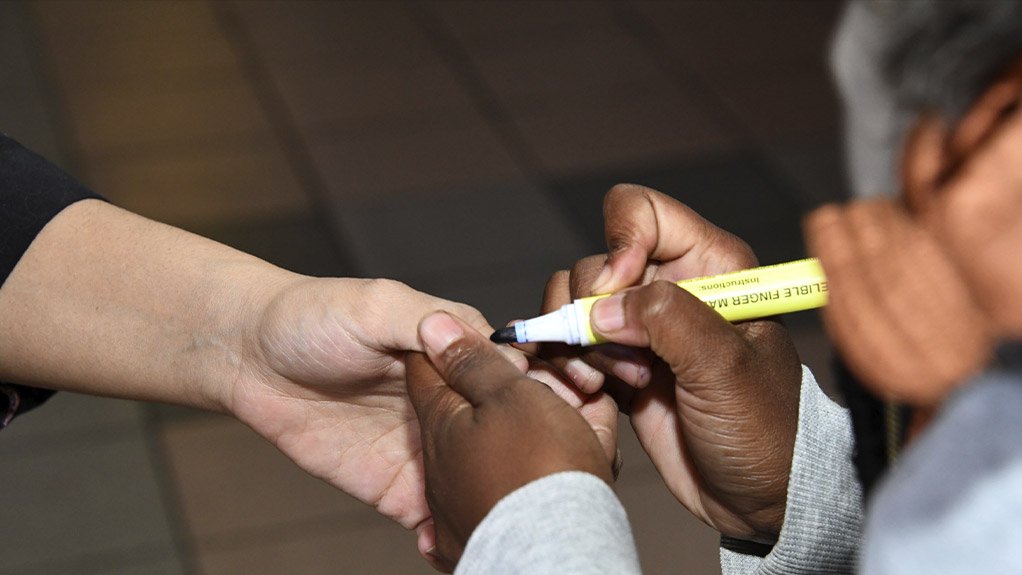An election poll conducted on young people's appetite to vote in the 2024 general election has found that this group remains eager to participate in the voting process, but disillusionment drives their voter apathy.
The Murmur Intelligence survey, which was conducted in October and which will be released publicly soon, provides a window into what drives the thinking of young people when they decide to register and cast their ballot on election day.
The survey engaged more than 500 people between the ages of 17 and 24 in the Western Cape, Eastern Cape, Gauteng, Limpopo and KwaZulu-Natal.
"Most youth surveyed showed a strong intention to vote, which is very encouraging.
"However, an overall disillusionment with the political system is the single biggest driver of voter apathy among many," the researchers said.
"The most commonly stated topic was a need to seek change, especially in terms of the current economic state.
"However, while most voters recognise this, it doesn't actually seem to drive voting intention."
Young people remain underrepresented in terms of the voting demographic in the country despite being the largest population group.
They remain the biggest target market of the Electoral Commission of South Africa (IEC) as the country gears up for next year's election.
The IEC last month launched a campaign aimed at attracting the youth to the voting booth.
The Murmur Intelligence survey also showed that education is a key driver in predicting whether people are willing to vote.
Previous unmet election promises were also a driver in why young people were not interested in voting.
This despite many political parties and social commentators stating that voting remains the only tool available to change a political system.
"Demographic drivers of voting apathy include a lack of tertiary education, [which] is more prevalent among black voters.
"Conversely, higher education and a position in the formal economy [with formal housing as a proxy for this] improve voter intention.
"After removing disillusionment from the analysis, we see that other strong drivers of voter apathy include empty promises and failed commitments, difficulty choosing who to vote for when no party seems like a good option and a lack of community development," the researchers said.
A study in 2020 by Collette Schulz-Herzenberg found that only 19% of eligible 18- and 19-year-olds registered for the 2019 national election and only 15% cast a vote.
Only 30% of eligible 20- to 29-year-olds voted.
Cultural and racial demographics
The Murmur survey gauged voting appetite based on cultural and racial demographics.
The poll found that young white people remain the most determined voters. Educated black youth came in second.
"The determined voter segment of the survey has the highest voting intention; 30% reside in the Western Cape, compared [with] 13% in the overall sample.
"Only 5% were from KwaZulu-Natal. About 60% speak English and 30% Afrikaans, and all identified as white," the survey found.
This group of young people was concerned with election control and the need for increased political outreach.
Most likely to vote
Another segment demographic was labelled as "diverse urbanites", with 97% identifying as black and living in urban areas.
This group's voting intention was highest, and most of those profiled (18%) were from Limpopo and predominately Setswana- and Sesotho-speaking.
This group battled to decide which political parties to vote for.
"They have a strong desire for national change and betterment, and they mention concerns about the distance to voting stations," the survey found.
Lower voting intention
Another sample demographic focused on traditional Zulus, who were predominately from KwaZulu-Natal and had slightly lower voting intention than the overall sample of participants, the survey found.
"They discuss the country's economic state and the challenges of load shedding."
Meanwhile, those profiled and identified as Xhosa reported a marginally higher voting intention than the Zulu demographic.
Least likely to vote
A mixed-bag group of participants fell into the reluctant subordinates who were least likely to vote while they remained concerned about corruption and the state of the economy.
"Thirty-five percent live in suburban areas, compared [with] 24% in the overall sample. Ninety percent speak English, in contrast to 35% in the overall sample," the survey found.
"Only 66% identify as black, less than the 79% in the overall sample, and 26% identify as coloured.
"They often express concerns about the country's economic state and perceived crises.
"They talk about political corruption and its impact on poverty. They discuss various political parties and their roles in civic issues."
Statistics
Murmur Intelligence researcher Kyle Findlay said: "Those groups are statistically identified; the model looks at their demographics and the topics they have mentioned and clusters them automatically together.
"These are the five segments that the statistics automatically arise in the data: White voters, black voters from the north, Zulus, Xhosas and urban mixture.
"Statistically speaking, if education is not called out on the segment of the white determined voters, it means statistically it was not a big player, a bigger feature defined that specific segment."
The study may seem small in terms of numbers, but Findlay said the polling holds weight because it is aligned with the national statistics and what might need to be done to ensure that young people vote.
"The study should not be taken as a last word from what these people in this age group think. Those who are going to vote, they need to be reassured to ensure they do show up to vote.
"The things that can help with that is ensuring there are no barriers on things [such as] transport and access to voting stations.
"They need to be sure that their vote can make a difference," Findlay said.
EMAIL THIS ARTICLE SAVE THIS ARTICLE
To subscribe email subscriptions@creamermedia.co.za or click here
To advertise email advertising@creamermedia.co.za or click here











